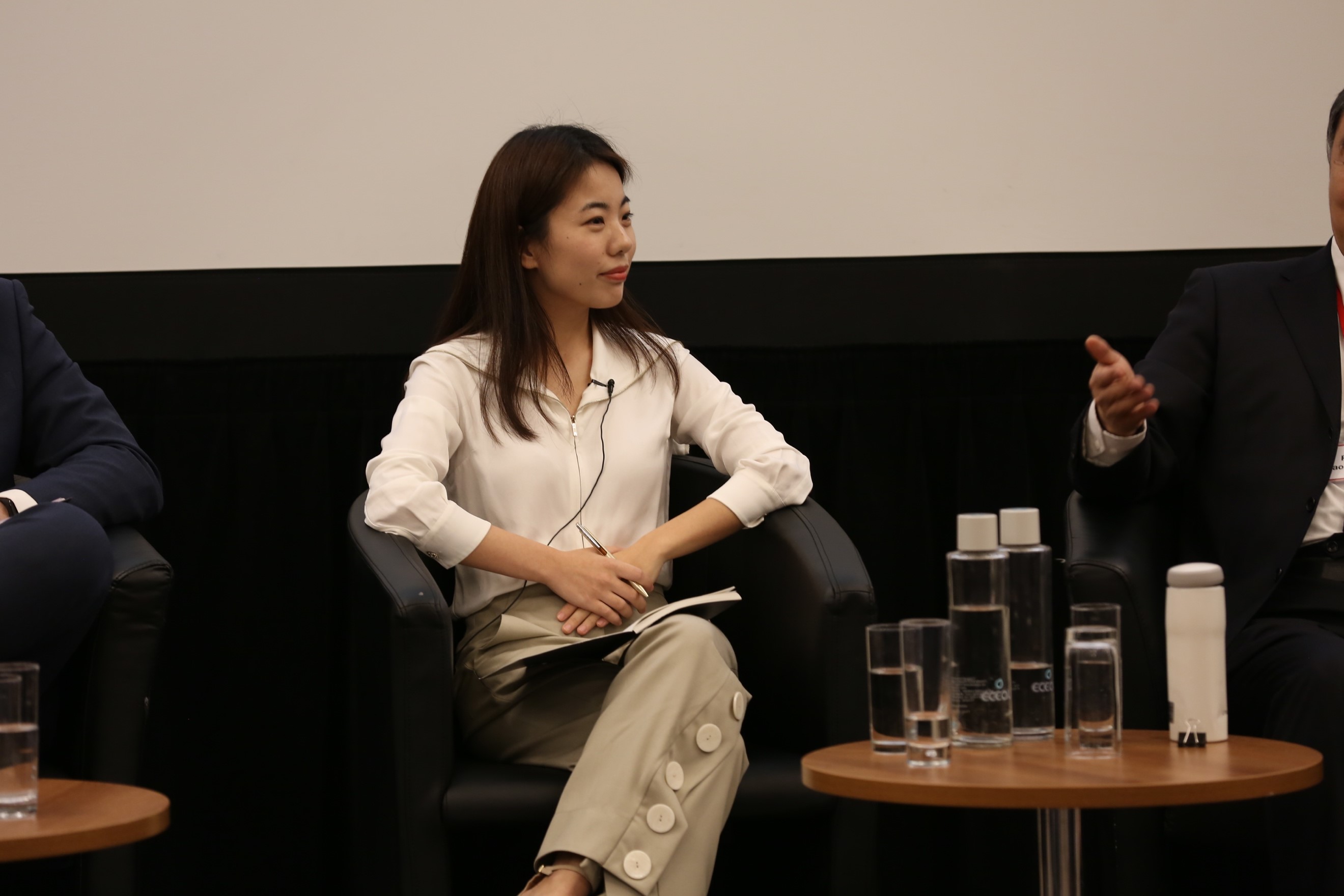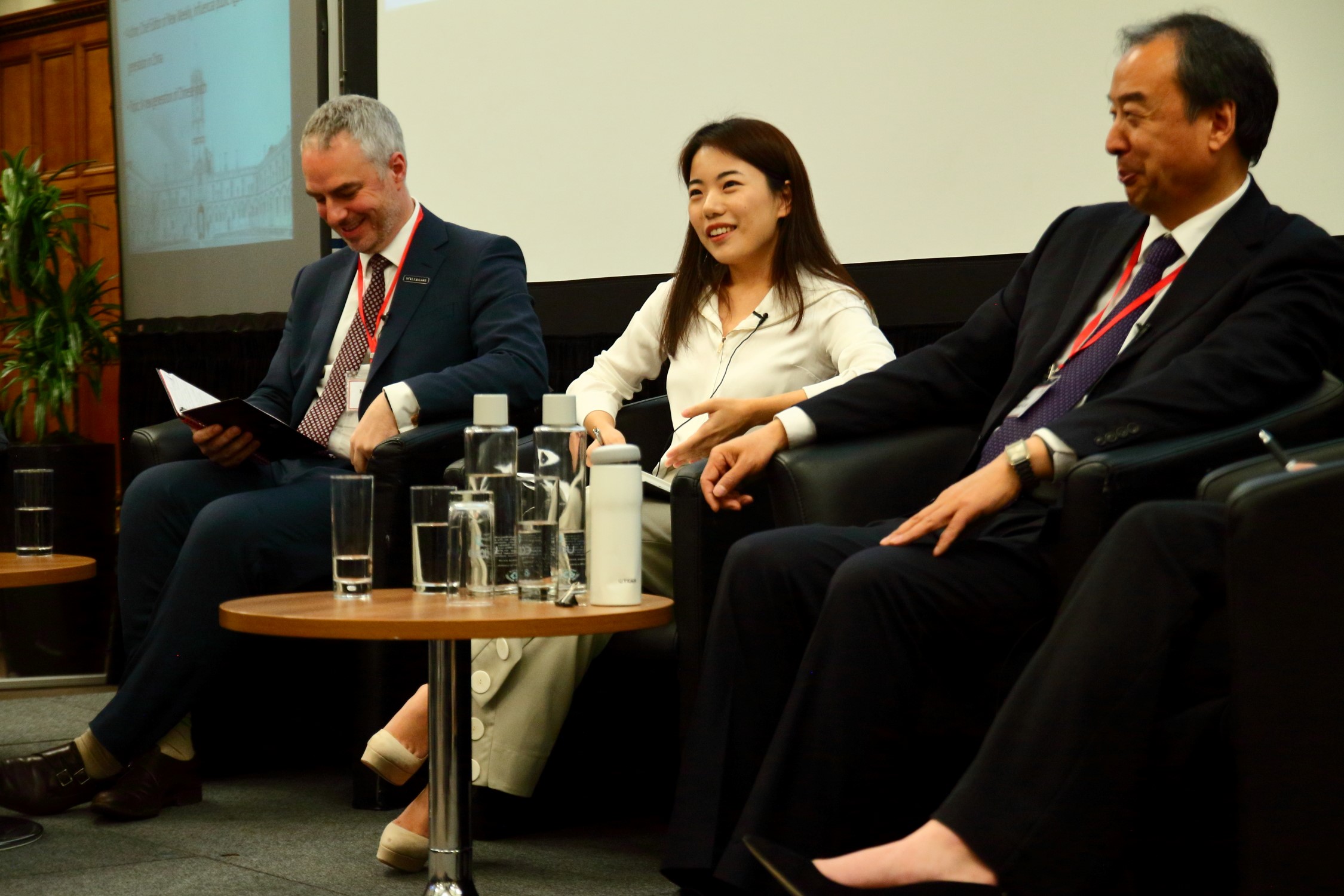文学有最浪漫的构想,亦有最残酷的现实。
当东西方文化汇入世界思潮,国界的概念变得微乎其微。我们该如何解读文学背后的全球化思维?时代风潮涌动,文学又将怎样赋予人类前行的力量?
2019牛津凤凰网中英国际论坛上,青年作家蒋方舟围绕“文学中的全球化”进行了英文主题演讲。蒋方舟认为,小说家最能理解全球化的今天。“在全球化的今天,我们更需要小说家的眼睛。我们要勇于接受创新带来的可能性,同时关注那些被落在后面的人;我们要不断去新的地方,同时对未知保持好奇,保持谦虚。像小说家一样永远保持旁观者的视角,才能理解过去,而从不恐惧未来”。
以下为蒋方舟论坛演讲的中文精编:

青年作家蒋方舟
【全球化对曾经的我而言,就是考好了去吃麦当劳】
大家好,我是蒋方舟。今天我想谈的话题是,文学与全球化。
在我刚开始写作的时代——也就是20多年前,这个问题并不存在。当时我住在中国湖北小城,对我来说,现实世界的边界就是我们家属院的金属栏杆;我生活里最接近“全球化”这个词的经验就是考试成绩好的时候,可以去吃麦当劳。
在当时,我已经决定以作家当作一生的事业,但那时候尚且天真的我,以为我是不需要了解外部世界的——这种认识是来自于我当时理解的文学传统。我以为作家只需要耕耘他视野范围内的一小块地方,当我们提到著名的中国现当代文学的时候,我们想到的是乡土文学,每个中国作家像是一个农夫,用他的想象管理着一小片土地:沈从文在湘西耕耘,路遥在陕西黄土地上耕耘,莫言在山东耕耘。

我曾经以为我也是这样的作家,一辈子会用文学去耕耘我所在的湖北小城市。但后来我发现,我失败了,我是城市化进程中的一代人,不断目睹“故乡”被拆除,我也是“望子成龙”的独生子女一代,父母从小的期待就是我到更富裕的地方,更遥远的地方。
所以我被迫不断从故乡逃离:离开小城,离开湖北。后来,这种离开变成主动的:我在异国无所事事地呆了一年的时间。
主动逃离一个很重要的原因,是我发现自己在写作上遇到了很大的困境。我是读西方小说长大的,对那种隔着几个世纪的生活了如指掌,向往莎士比亚和毛姆所身处的伦敦,我的小说语言也来自他们。而当我开始下笔写作,却发现脑海中的世界和现实世界充满了反差。
类似的痛苦,我曾经看到我喜欢的作家奈保尔提到过:奈保尔出生在加勒比地区,祖父从印度移民过来。他在少年时代就读完了很多西方文学经典。而当他离开故土,在牛津开始写作,他发现小说这一体裁源自西方,本质上是西化的。那么西方的文化如何能够完整地表达他的家族、他的迁徙,以及他记忆里神秘而模糊的印度?
所以奈保尔选择不断远行,从远方去打量家乡。我相信在座的很多留学生都会有类似的感觉,你们离家万里,可是有时候从远处观看中国,反而给了你们更清晰的视野。
【小说家最能理解全球化的今天】

小说家在现实生活中有需要纳税的国家,但是在精神上,他可以无视国别、意识形态,生活在全世界上的任何地方。
在某种程度上,小说家最能理解全球化的今天。
如今,全球化带来了信息的便利,制造了相似的生活经历。大都市们被跨国连锁店联系在一起。全世界的消费者喝同样的星巴克,在苹果店买同样的新款电脑。亚马逊和Netflix领航出版业和电视业。日本车企让曾经的本地巨头相形见绌。
可是,这种繁荣带来的福利远非平衡。当过得不错的人享受着奢华便利的生活,那些过得不怎么好的人却失去了机会,未来甚至他们的文化身份。新技术和贸易带来许多新的工作岗位,却也消灭了很多旧的。人口结构与文化上的变化威胁到许多国家的社会团结。没有大学学位的成年人越来越被经济和社会发展抛在后边。移民与难民在很多发达国家激起了民粹主义反弹。

这些现象看似是新千年才有的命题,其实早在100年前,作家康拉德就有所预见。在小说《黑暗的心》中,康拉德揭示了一些全球化与现代化中最深层的矛盾。小说中的西方殖民者把自己打扮成文明的使者。他们中的一员,故事的主人公科特兹本来拥有理想,要把商业与科技传播到非洲大地。但在这个过程中他却变得失望,并被自己的权力和野心腐蚀,最终成为一个鱼肉当地非洲人的暴君。
《黑暗的心》之中的隐喻不会过时,我们看似生活在全新的世界,实则一次次进入康拉德笔下到世界。
【时代需要小说家的眼睛,如此才能不惧未来】
我不知道在座各位有多少是打算以文学,或者文化作为自己的志业的。我想,这样的人恐怕不多。但是我始终认为,一个人可以一辈子没有写过一篇小说,但是他依然可以有一双“小说家”的眼睛。
什么是小说家的眼睛?在我看来,就是用文字重新建构现实的能力。小说家终其一生都在撒谎,在建构不存在的时间,去揭露别人没有发现的世界,去预言尚未到来的时代。

历史学家沉重地记录上个时代发生的苦难,当经济学家忧心忡忡地预测下个时代可能的危机。小说家相比较他们来说,则拥有很多优势。因为小说家的眼睛早就跨越了空间和时间,站在过去与未来的交界处——那是巨大的时代裂缝,所有人都害怕掉进去,被抛弃,而站在这个裂缝处的小说家却是最兴奋的,就像George Eliot写过的:我们都记得我们生命中的那些重大时刻——那时旧的期待落空,新的渴望勃发。
我认为,在全球化的今天,我们更需要这种小说家的眼睛。我们要勇于接受创新带来的可能性,同时关注那些被落在后面的人;我们要不断去新的地方,同时对未知保持好奇,保持谦虚。像小说家一样永远保持旁观者的视角,才能理解过去,而从不恐惧未来。
附论坛英文演讲全文:
Hello everyone, I am Jiang Fangzhou. Today I want to share with you my thought on literature and globalization.
At the time when I started writing, that was a non-question. I was born and raised in a small city in Hubei province. For me, the border of my living world was the metal fence that guarded our living area. The thing most closed to the word “globalization” for me, was that when I did well in exams, I could eat MacDonald’s.
By the time, I had already decided to make writing as my lifelong career. However, that innocent me didn’t recognize the necessity of seeing the world. This understanding came from what I thought as the literary tradition. I naively believed that a writer only needs to labor the field within her vision. The most impressive modern Chinese literature stuck in the countryside and the writers’ hometown. A Chinese writer was like a peasant, using his imagination to handle a small piece of land: Shen Congwen worked on Xiangxi, Lu Yao worked on Shaanxi’s yellow earth, and Mo Yan worked on Shandong.
I use to believe I belonged to their kind, spending my whole life to work on my little Hubei city. Later on, I was proved wrong. I belonged to a generation of rapid urbanization. Our “hometowns” were to be demolished. I also belonged to a generation under the “One Child Policy.” Having only one child to care about, our parents had high expectations towards us. They hoped that I could move to somewhere more prosperous.
Therefore I was forced to run away from my hometown: first the little city, then Hubei province. To escape became a choice when I grew older. I lived in Japan for a year with no purpose in mind.
One important reason to go far was that I found myself trapped in stagnation of my writing. Western works fed me, and I knew well about the lives centuries ago. I longed for London of Shakespeare and Maugham However, when I started my writing, I realized the world in my mind was sharply different from the world I was living in.
This kind of dilemmas was also mentioned by one of my favorite writer V.S.Naipaul. Naipaul's grandparents moved from India to a Caribbean small country where he was born. He read much classic western literature as a young man. When he left his birthplace, beginning his writing at Oxford, he felt confused. He realized that the genre we call fiction was Western. So how could this western product reasonably express the essence of his family, his emigration, and that mystic India in his memory?
Naipaul’s answer to this question was to keep moving and to gaze at the hometown from afar. I guess some of you international students here have the same feeling. You are far away from home. However, sometimes distance gives you clearer eyes to understand China.
Novelists belong to different countries. They must pay tax to a particular state. Nonetheless, spiritually, they can live in anywhere in the world, regardless of nationality or ideology.
To some extent, novelists are best poised to understand globalization.
The free flow of products, talents, and
information has created some similar life experience. Multinational chains connect metropolis. People enjoy the same latte of Starbucks across the oceans and seas. New MacBook models are showcased in all Apple Stores. Amazon and Netflix revolutionized publication and TV industry. Car makers of Japan dominate North America, dwarfing local giants like Ford or GE.
On the other hand, the gospel of prosperity does not benefit the world evenly. While the well-to-dos enjoy a luxurious and convenient life, the have-nots are deprived of future, opportunities, and even their identities. New technologies and trade bring new jobs but also smashing old ones. Demographic changes and culture diversification threaten social coherence in many nations. Adults without a college degree are increasingly left behind regarding social-economic status. Immigration and refugees ignite populist backlashes among developed countries.
Those phenomena appear to be new challenges of this millennia. However, one century ago, Joseph Conrad had already prophesied a world like ours. In his fiction Heart of Darkness, He revealed some most profound contradictions of modernization and globalization. The western colonists in this novel portrayed themselves as messengers of civilization. One of them was once an idealist believing in spreading science and trade all across Africa. Somehow he becomes disillusioned and corrupted by his power and ambition. He became a tyrant, ruling local African natives at his well.
The metaphors of Heart of Darkness will not be outdated. Today we seem to live in a whole new world,actually,we just enter the world Conrad has described hundred years ago.
I don’t know how many of you are thinking about taking literature or cultural industry as your career. I am afraid the number is not very large. However, I always believe that one could have eyes of “novelist” without writing a single fiction.
What are the eyes of the novelist? For me, it means the power to reconstruct the reality with words. A novelist is a lifelong liar, he creates the time that doesn’t exist, he reveals worlds unknown to other people , and he envisions futures yet to come.
Historians record past catastrophes with saddened hearts. Alarmed economists predict the possible future crisis. Compared to them, novelists have some unique advantages. For novelists’ eyes have traveled beyond time and space, standing in the border between past and future. That border is the rift of change. Nearly everyone fears to be consumed by this blackhole while novelists are gazing at it joyfully. Like George Eliot once claimed: “We all remember epochs in our experience when some dear expectation dies, or some new motive was born.”
I believe that in this era of globalization, we need the eyes of novelist more than ever. We should pioneer the new possibilities offered by innovations while keeping an eye on those left behind. We should explore new places while staying humbled and curious. Only when we learn to observe things like outsiders, like a novelist, we can understand the past and embrace the future.



